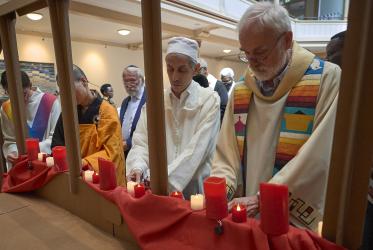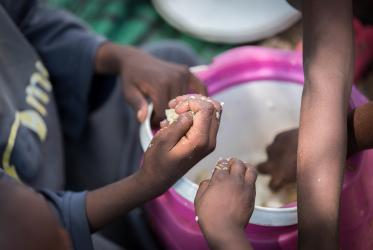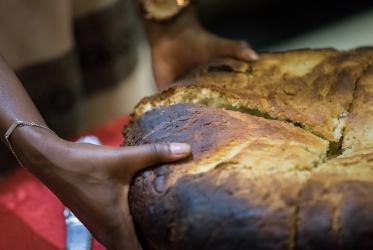Displaying 81 - 100 of 279
Interfaith conference will explore role of faith in HIV response
03 September 2020
Martin Khor Kok Peng, “friend of the poor,” passes away
03 April 2020
Faith communities vital in overcoming hunger
18 March 2020
Eco-School promotes blue communities, green churches
19 November 2019
WCC Eco-School begins in Thailand
07 November 2019
Young people in Togo: “Hear our voice! We want to tell our stories!”
07 November 2019












